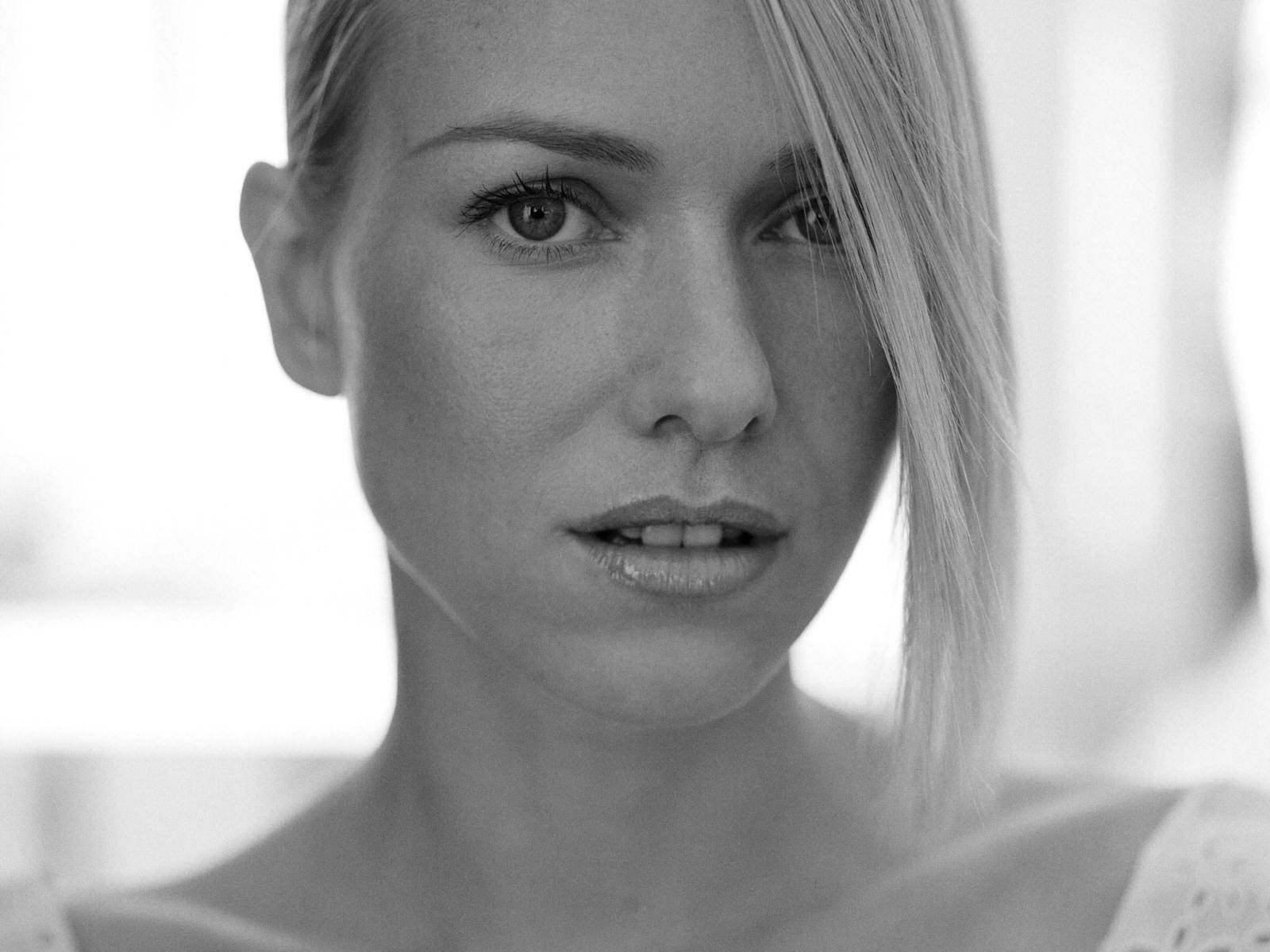|
|
Naomi Ellen Watts
|
The following year, she took the part of Julia Cook in Gregor Jordan's Australian film Ned Kelly opposite Heath Ledger, Orlando Bloom and Geoffrey Rush; as well as starring in the Merchant-Ivory film Le Divorce, portraying Roxeanne de Persand, a poet who is abandoned by her husband Charles-Henri de Persand at the time she is pregnant. Roxeanne and her sister Isabel (Kate Hudson) dispute the ownership of a painting by Georges de La Tour with the family of Henri's lover. Entertainment Weekly gave the film a "C" rating and lamented Watts' performance: "I'm disappointed to report that Hudson and Watts have no chemistry as sisters, perhaps because Watts never seems like the expatriate artiste she's supposed to be playing".
Conversely, her performance opposite Sean Penn and Benicio del Toro in director Alejandro González Iñárritu's 2003 drama 21 Grams earned Watts an Academy Award nomination as Best Actress later that year. In the story, told in a non-lineal manner, she portrayed Cristina Peck, a grief-stricken woman living a suburban life after the killing of her husband and two children by Jack Jordan (Benicio del Toro), who started a relationship with the critically ill academic mathematician Paul Rivers (Sean Penn). She said of the nomination, "It's far beyond what I ever dreamed for – that would have been too far fetched". She also was nominated for Screen Actors Guild Award for Outstanding Performance by a Female Actor in a Leading Role, as well as many other nominations and acclaim. The New York Times praised her: "Because Ms. Watts reinvents herself with each performance, it's easy to forget how brilliant she is. She has a boldness that comes from a lack of overemphasis, something actresses sometimes do to keep up with Mr. Penn". The San Francisco Chronicle wrote: "Watts is riveting, but she's much better in scenes of extreme emotion than in those requiring subtlety."
She then starred alongside Mark Ruffalo in the 2004 independent film We Don't Live Here Anymore. The film is a drama which was based on the short stories We Don't Live Here Anymore and Adultery by Andre Dubus, and depicts the crisis of two married couples. She reunited with Sean Penn in The Assassination of Richard Nixon, which was set in 1974. She played Marie Andersen Bicke, the wife of the would-be presidential assassin Samuel Byck (Penn). Finally in 2004, she teamed up with Jude Law and Dustin Hoffman in David O. Russell's ensemble comedy I Heart Huckabees. Watts next starred and co-produced with director/screenwriter Scott Coffey her film, the semi-autobiographical drama Ellie Parker (2005), which depicted the struggle of an Australian actress in Hollywood. The film began as a short film that was screened at the Sundance Film Festival in 2001 and was expanded into a feature-length production over the next four years. Film critic Roger Ebert praised Watts' performance: "The character is played by Watts with courage, fearless observation and a gift for timing that is so uncanny it can make points all by itself."
Watts returned in the lead role in the sequel to The Ring, The Ring Two. The film received several negative reviews, but was a major success at the box office, with an over US$161 million worldwide gross (equivalent to US$195.1 million in 2016) and Watts was once again praised for her performance. Her third film of the year was Marc Forster's psychological thriller Stay. Written by David Benioff, it also starred Ewan McGregor, Ryan Gosling and Bob Hoskins. Watts then starred in the 2005 remake of King Kong as Ann Darrow. Watts was the first choice for the role, portrayed by Fay Wray in the original film, with no other actors considered. In preparation for her role, Watts met with Wray, who was to make a cameo appearance and say the final line of dialogue, but she died during pre-production at the age of 96. King Kong proved to be Watts' most commercially successful film yet. Helmed by The Lord of the Rings director Peter Jackson, the film won high praise and grossed US$550 million worldwide (equivalent to US$666.4 million in 2016). The Seattle Post-Intelligencer praised her performance: "The third act becomes a star-crossed, "Beauty and the Beast" parable far more operatic and tragic than anything the original filmmakers could have imagined, exquisitely pantomimed by Watts with a poignancy and passion that rates Oscar consideration."
|
|









